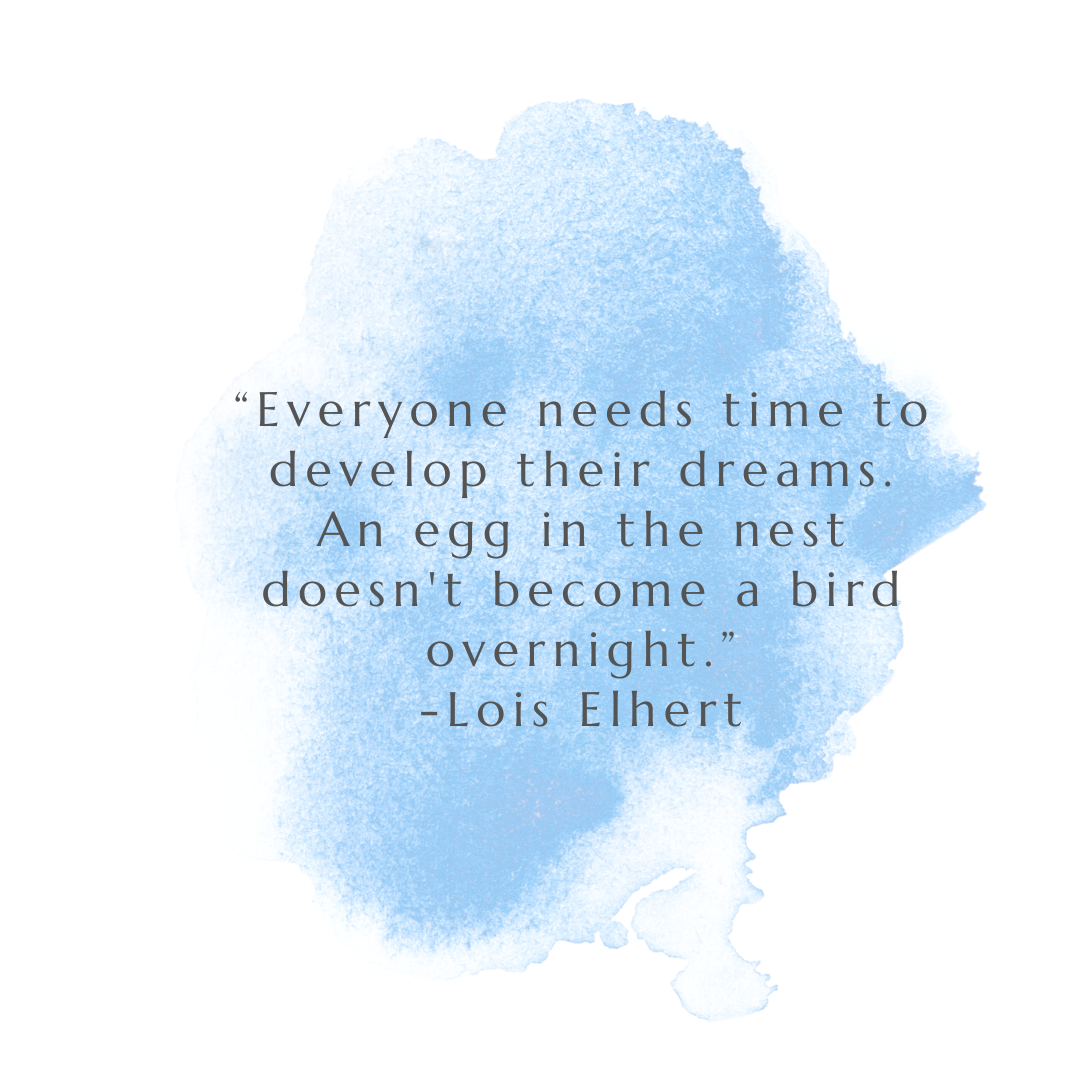Hi, I’m Rachel!
Rachel Moses, LMHC, NCC
She/Her/Hers
I'm here to provide a calm, steady presence as you navigate whatever you're going through.
My Approach
I am a Licensed Mental Health Counselor (LMHC) in New York and a National Certified Counselor (NCC). I hold a Master’s degree in Mental Health Counseling and a Bachelor of Science in Psychology, both from Brooklyn College. I am also a Certified Grief Informed Professional which means I have additional training in supporting clients who are grieving.
Above all, I am human and I believe that the client is the expert of their own experience. My education and experiences help guide me, but at the end of the day, each clients' experience is unique to them and I enter the therapy space with a "not knowing" stance. I do my best to not assume what may be going on for you based on any preconceived notions or assumptions. I balance this by pulling on evidence-based interventions for tools to use to address what you're coming in for.
I founded The Nest Mental Health Counseling to create a safe, supportive space where clients can feel seen, heard, and nurtured. It’s a place to grow, heal, and rediscover your strength. When you’re ready to leave the nest and spread your wings, you’ll do so with confidence, knowing you're always welcome to return. While the tone and approach of our work may shift based on your individual needs, I believe that authentic connection lies at the heart of all healing and growth. Working with me means you'll get thoughtful, personalized care that’s often harder to find in larger, busier practices.
How Can I Help?
Grief and Loss
Grief is something that we all have experienced or will experience yet we don't seem to talk about it enough. I have helped clients address different types of grief from a loss of a loved one to loss of normalcy and from anticipatory grief to disenfranchised grief and more. I am also a Certified Grief Informed Professional (I had specific training on grief and interventions to use to cope with grief).
Depression
Through compassionate support and a tailored approach, I aim to help clients better understand their depression, uncover strengths they may have forgotten, and build meaningful paths forward. I use evidenced-based practices like CBT and specific interventions to help you feel like yourself again. For example, behavioral activation is a great way to set smaller, attainable goals when things feel insurmountable and to find pleasure in the day to day that you may have lost.
Life Transitions
Are you relocating, going through a breakup, or starting a new job? Major life transitions can bring a complex range of emotions and can significantly impact one’s sense of identity and stability. These periods of change may also heighten stress, anxiety, or feelings of loss. Therapy can provide a structured, supportive space to process these changes and create a sense of stability in rocky times.Anxiety
Anxiety is a common issue my clients experience. While it can serve as a driving force to help us get things done, it may get to a point where it hinders us and impacts our day to day lives. In my practice, I have supported clients with anxiety utilizing evidence-based practices and patiently giving them a space to work through the anxious thoughts and feelings.
Actors and Other Creatives
I often work with creatives and actors, recognizing the unique complexities that come with these lines of work. These professions are not only deeply personal and emotionally charged but also unpredictable. Whether you’re navigating the psychological demands of performance, handling rejection, sustaining motivation through uncertain times, or simply making space for authenticity amidst a highly competitive industry, I am here to support you.
Modalities I Use
Cognitive Behavioral Therapy (CBT)
While my approach is integrative and relational, I often incorporate techniques from Cognitive Behavioral Therapy (CBT) because it offers practical, evidence-based tools that clients can use both in and outside of session. CBT can be especially helpful when someone is feeling overwhelmed and needs something concrete to anchor them or regain a sense of control.
One of my go-to techniques is progressive muscle relaxation, a practice that involves tensing and then releasing different muscle groups, while staying mindful of the breath and the present moment. It’s a simple but effective way to calm you and reconnect with the body when stress or anxiety takes over.
While I don’t exclusively use CBT, I often weave some strategies into our work when it feels appropriate. These tools are never one-size-fits-all, so I tailor them to your needs.Attachment theory
Our early attachments (especially those with caregivers) shape how we relate to ourselves and others. These formative experiences influence our sense of safety, ability to trust, and how we navigate closeness, conflict, and vulnerability.I use attachment theory as a lens to help clients understand current relational and emotional patterns, including how these may show up in therapy. Early in our work, I often explore past relationships to better understand how clients learned to express their needs, manage emotions, and seek support.I also pay attention to how attachment dynamics emerge in the therapeutic relationship itself. Rather than pathologizing them, we work together to notice, understand, and when needed, gently shift patterns that no longer serve you.Person-Centered Therapy
At the core of my practice is empathy, genuineness, and unconditional positive regard. These are the three core values of person-centered therapy. Regardless of what you are coming in for, where you came from, and what modalities I use, I will always incorporate these three core values.
Empathy allows me to deeply understand your experiences from your perspective, without judgment. Genuineness means I bring my authentic self into the room. I am not just a therapist, but a real person who is present and invested in you. Unconditional positive regard means that I accept you fully, just as you are, without conditions or expectations. You do not have to earn worthiness in this space. It is granted by your very being.Mentalization-Based Therapy (MBT)
Mentalization-Based Therapy (MBT) is an evidence-based form of therapy that helps people better understand what’s going on in their own minds and in the minds of others. "Mentalizing" means being able to reflect on thoughts, feelings, and intentions, both your own and those of the people around you. It’s especially helpful when relationships feel confusing, intense, or difficult to manage. Sometimes we are really good at mentalizing, and other times we struggle with it. Sometimes, when we’re stressed, overwhelmed, or emotionally activated, we lose the ability to see things clearly—we stop mentalizing. MBT helps us pause, reflect, and get curious again rather than reacting automatically or assuming the worst. In our sessions, I might gently slow things down when you're describing a tough moment, especially in relationships.Motivational Interviewing (MI)
Motivational interviewing (MI) is another evidence-based, client-centered therapy to use when a client is ambivalent towards a change. For example, you may acknowledge that smoking is damaging to your health and others want you to stop, but you aren’t sure you are ready to quit yet. MI emphasizes finding your own internal motivation to make a change.
Instead of telling people what to do, MI focuses on evoking client’s own reasons and motivation for making a change. It emphasizes empathy, collaboration between client and therapist, and respect for autonomy.
Webinars and Trainings
To deepen my expertise and better support you, I’ve completed these additional specialized webinars and trainings.
Vermont Association for Psychoanalytic Studies: Introduction to Mentalization: An Example of Theoretical and Clinical Integration (2020)
District 21 NYC Upper West Side, Public Outreach Committee: Al-Anon, A Community Resource for Patients and Clients (2023)
McLean Hospital and the Department of Psychiatry and Behavioral Sciences at the Stanford University School of Medicine: Suicide Assessment and Treatment Course (2023)
TPN Health: Psychiatric and Medical Comorbidities of Eating Disorders (2024)
NOCD Academy: OCD in Adults: Symptoms, Assessment and An Introduction to First Line Treatments (2025)
NOCD Academy: ODC Subtypes: Identification and Treatment (2025)
PESI: Grief Treatment Certification Training: Evidence-Based Approaches to Care Across the Lifespan (2025)
Get in Touch!
One of the most important predictors of effective therapy is the relationship between client and therapist. I offer a free 15-minute consult to see if we would be a good fit.
FAQs
-
First things first, doing your research is a huge step! Second, the therapeutic fit is crucial, so feel free to reach out and ask questions. I offer a free, 15 minute consult call to see what you’re coming in for, how I could help, and answer any questions you may have.
-
Depending on the duration of our sessions (45 or 60 minutes), individual therapy ranges from $160-$175 per session. We can talk about the duration together.
For relationship/couples therapy, sessions are 60 minutes long and $200.
I do not accept insurance, but I will provide superbills to clients if they request them.
-
I usually don’t give a timeline, since every person is different. However, one of my goals as a therapist is to not keep people in therapy forever. Eventually, you will learn to process your experiences, take the coping skills you learn with you, and leave the “nest” when you’re ready.
-
Right now, all therapy sessions are held virtually through SimplePractice, a HIPAA compliant platform.



